Napier, Florida learning and adjusting to new era with NIL
We’re in the infancy stage of name, image, and likeness in college football. Billy Napier and the Florida Gators are takings steps to ensure that UF is not getting left behind. For more than 100 years student-athletes playing sports under the NCAA were not allowed to receive money at the risk of losing their eligibility.
NIL’s origins can be traced back to the Ed O’Bannon class-action lawsuit. O’Bannon argued that student-athletes should be compensated for their name, image, and likeness in video games. With the new laws in effect, student-athletes can start their own businesses, profit from autograph signings, podcast and radio appearances, monetize social media accounts, and many other ventures. In the state of Florida, a bill was passed and went into effect on July 1, 2020.
The NCAA fought hard, all the way to the steps of Congress to stop NIL from happening. That led to multiple states having different laws on the books and some having none. It has been a wild west of lawlessness, complicated more by the fact that the NCAA has done little to nothing to police the new rules. If you have rules but they aren’t being enforced.
“There’s a ton of grey area relative to what you can do and what you can’t do. There’s no manual, there’s no parameters, guidelines,” Billy Napier said. “I’m using the term, ‘we’re living in a land with no laws.’ I think it very much continues to be a very fluid situation. You hear something new each day.”
NIL is not supposed to be used as an incentive to attend a school. Is that the case? If you believe that I have a bridge in Brooklyn to sell you.
How Napier and Florida are handling NIL
On the Gators Online Podcast, Scott Stricklin was asked how the Gators are handling the new landscape.
“We’re not going to cut a corner. We’re going to do things the right way. We don’t want the boosters involved, the recruiting process,” Stricklin told Nick de la Torre and Zach Abolverdi. “Yeah, obviously, we have a couple of high-profile collectives that are out there. Some athletes that are currently on our campus, not recruits, will benefit from it.”
Florida is intent on not breaking the rules, even if there seemingly is no penalty for breaking the rules. It’s an admirable public stance. The Gators continue to say that they believe NIL will be a benefit to the school in recruiting. In the seventh month that Napier has been at Florida, he’s aimed to keep the Gators at the forefront.
“It’s no different than coming up with a recruiting strategy. Or coming up with a game plan on offense, defense, and special teams,” Napier said. “You’ve gotta evaluate your institution. Your strengths and weaknesses. How do you position your team for success and do it with some integrity, which would be the intent at the University of Florida?
“I’m a firm believer that this is a positive relative to we’re living in a different era. If you go back to 1990, I did some research the other day. Each SEC institution got like $1.3 million dollars from the league. 1990. Just 13 years ago, I think it was $6 or $7 million. I think this (2024 TV) deal is in the high $60s low $70 (millions). I’ve been in this profession and I’ve observed the explosion. I think it’s foolish to say that the players don’t deserve a piece of the pie.”
How can NIL be an advantage for Florida?
The Gators were one of the first programs to have alumni really get heavily involved in the NIL space. On3 is leading the charge in terms of media companies. On3 has launched a NIL database. This service will track individual deals for athletes. It has a collective database and collective profiles. It has rules for individual states for college and high school, a news feed, and NIL valuations.
Florida has two allies in its corner to help make NIL an advantage.
Gator Collective
The Gator Collective was founded by former Florida Gators pitcher, Eddie Rojas, and his wife Kelli, Jen Grosso serves as the GC’s Head of Operations and Player Relations. The group was one of the first collectives formed in 2021 to support student-athletes in their Name, Image, and Likeness endeavors. The Gator Collective quickly raised hundreds of thousands of dollars. They have facilitated NIL deals with more than 100 Florida student-athletes in its first year. The Gator Collective was also the first NIL collective to sponsor the athletic department it supports. This has given it access to UF athletes that other groups are missing.
Gator Guard
The Gator Guard was founded by CEO and long-time Florida fan Hugh Hathcock. It’s billed as “a new, exclusive, very influential group of high-net-worth Gators” that are willing to make donations in the millions. It didn’t take big money boosters long to jump on board. Once the Gator Guard launched on April 21, 2022, the group had $3 million pledged to the cause.
That quickly rose to $4 million minutes after the group went public. Then less than 20-minutes after hitting the $4 million mark, the Gator Guard reached $5 million in contributions. Make no mistake, the Gator Guard was formed with the goal of bringing a national championship in football to Gainesville. “For all that Billy Napier does well, we have to give him the rest of what he needs so that we can be competitive with other schools when it comes to NIL deals,” Hathcock said. “We need to be competitive now. This year. And the Gator Guard will help us do that”. The Guard Guard has also partnered with fellow Florida collective, Gator Collective, to “ensure Gator athletes have the best opportunities.”
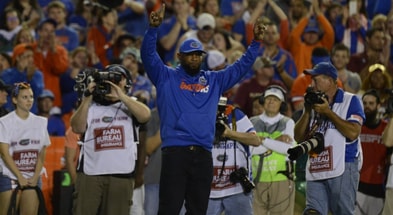
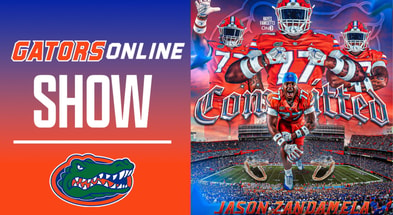
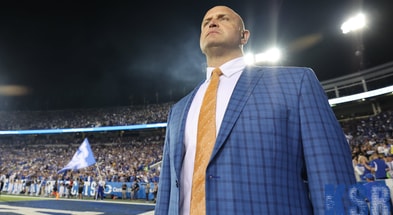
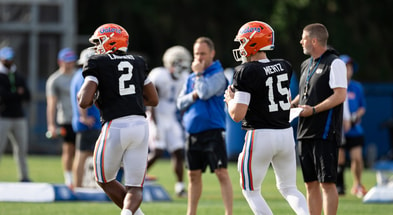
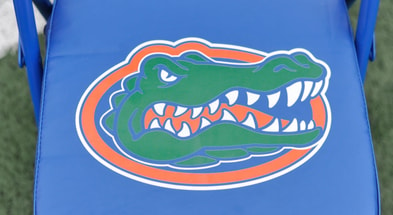
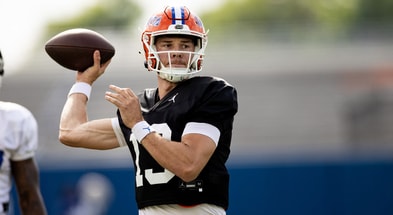
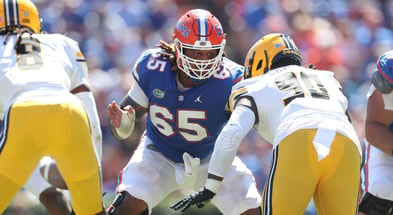
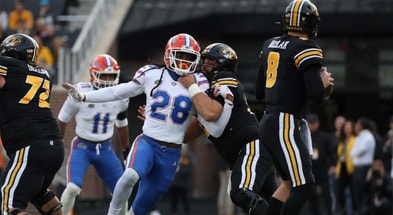
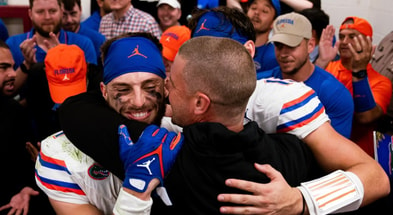
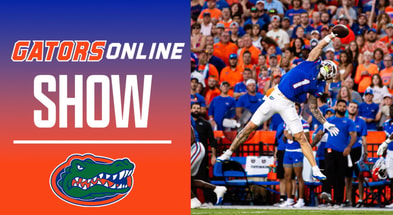
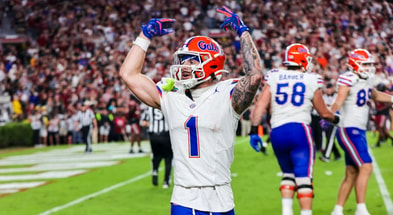
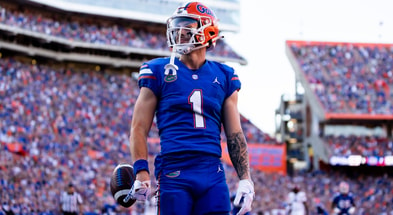
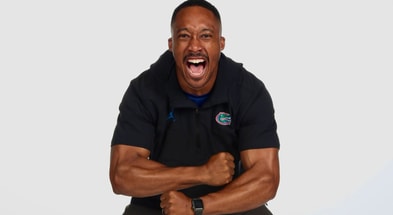
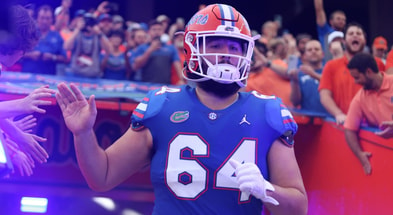
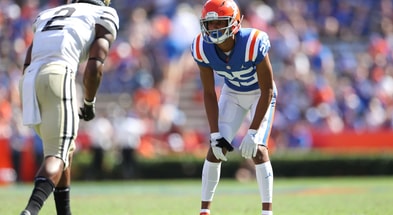
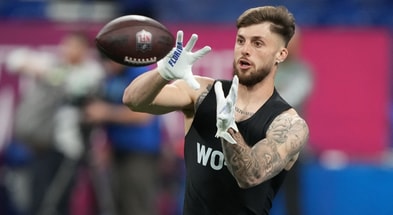
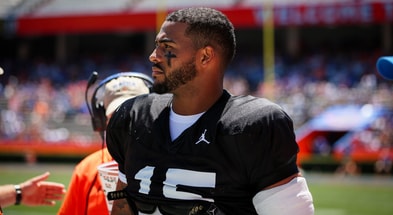

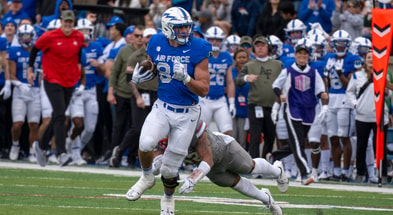
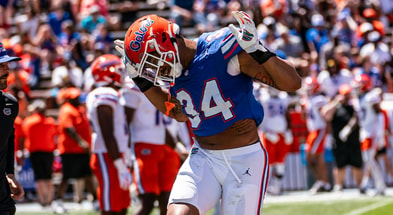
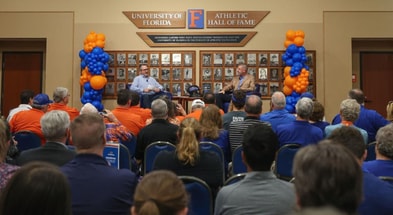
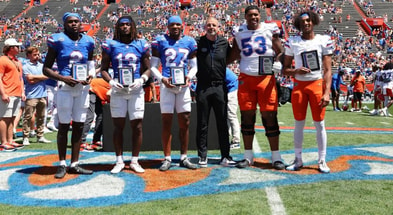
![Florida Gators head coach Billy Napier celebrates with Florida Gators wide receiver Aidan Mizell (11) after a touchdown during the first half at the Orange and Blue spring football game at Steve Spurrier Field at Ben Hill Griffin Stadium in Gainesville, FL on Saturday, April 13, 2024. [Matt Pendleton/Gainesville Sun]](https://on3static.com/cdn-cgi/image/height=215,width=393,quality=90,fit=cover,gravity=0.5x0.5/uploads/dev/assets/cms/2024/04/13155133/Untitled-design-65-2.png)